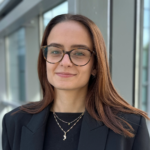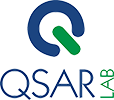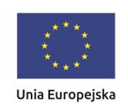
Prof. Tomasz Puzyn PhD, DSc
Co-owner
CEO
Scientific Director
World-renowned specialist in the field of chemoinformatics and environmental chemistry, co-author of fundamentals of computational nanotoxicology. Since 2008 he has been managing the Laboratory of Environmental Chemometrics he created at the University of Gdansk. Current research concerns the development of chemoinformatic methods for the design of nanomaterials and ionic liquids as well as an assessment of risk they may pose for human health and environment.
Prof. Puzyn is the author of 139 research papers, including publications in leading journals (e.g. Nature Nanotechnology, Green Chemistry), with a total IF of over 480, and an editor of 5 books published worldwide. He delivered over 25 invited talks abroad. His works have been cited more than 2’700 times and the Hirsch index is 30. He is an active member of the EU NanoSafety Cluster: coordinator of 2 projects implemented in the FP7 framework and a member of 7 HORIZON 2020 projects consortia. He cooperates with over 50 institutions from around the world. Laureate of the scholarship of the Japanese Society for the Promotion of Science, 3 FNP programs, MNiSW scholarship and the Polish Prime Minister's award for the postdoctoral achievement.
In the QSAR Lab Ltd. spin-off company, professor Puzyn acts as CEO and Scientific Director, being reponsible primarily for the operation of the Company in the area of research and development and for the scientific supervision of carried out services.

Paweł Bajurski
Co-owner
CFO
Managing Director
is a manager with 15 years of experience in the consulting industry, specializing mainly in consulting in the field of project management, business models and obtaining external financing. He has Project Management Professional (PMP) certificate, the most recognized certificate in the field of project management issued by Project Management Institute - an international institute associating project managers and PRINCE2 Foundation certificate. He prepared dozens of applications for subsidies from national funds (Operational Program Innovative Economy, national funds of the National Center for Research and Development) and foreign funds (EU 7th Framework Programme, Horizon 2020), acquiring over 150 million PLN.
He is primarily responsible for its business function: organizational, sales and financial aspects.

Alicja Mikołajczyk PhD
Co-owner
Business Development Director
Senior R&D Specialist
QSAR, ML,
advanced materials design, SSbD
A graduate of the Faculty of Mathematics, Physics and Chemistry at the University of Silesia with a Bachelor's degree in Chemistry and Medicinal Chemistry, and the Faculty of Chemistry at the University of Wrocław with a Master's degree. Since 2013, she has been affiliated with the Faculty of Chemistry at the University of Gdańsk, where she earned her PhD in 2017.
Assistant professor in the Environmental Chemoinformatics Team at the Faculty of Chemistry, University of Gdańsk, as well as a scientific team leader and co-owner of QSAR Lab. Over the past 12 years, she has conducted basic, industrial, and applied research within the EU’s 7th Framework Programme, Horizon 2020, and Horizon Europe. She has also participated in numerous projects funded by the National Science Centre (NCN), the Foundation for Polish Science (FNP), and the National Centre for Research and Development (NCBR).
An expert in statistics and chemometrics, she integrates machine learning, artificial intelligence, and molecular modeling methods as tools to support the sustainable design of safe, advanced, and innovative materials, chemicals, and pharmaceuticals (in line with the Safe and Sustainability-by-Design principle).
Dr. Mikołajczyk’s research aims to develop computational methods for assessing the risks posed by new materials—particularly hybrid nanomaterials and heterogeneous photocatalysts—to human health and the environment. Her responsibilities include coordinating research tasks within projects focused on the risk assessment of heterogeneous nanomaterials (including heterogeneous and multicomponent nanoparticles).

Anita Sosnowska PhD (Eng.)
Co-owner
Chief Operating Officer
Senior R&D Specialist
QSAR, Data analysis,
Computational risk assessment of chemicals
PhD in Chemical Sciences. A graduate of the Faculty of Chemistry at Gdańsk University of Technology (major – Biotechnology, specialization – Drug Technology). Currently serves as an assistant professor at the Environmental Chemoinformatics Laboratory at the University of Gdańsk, as well as a research team leader and Senior R&D Specialist at QSAR Lab, where she is also a co-owner. Author of over 40 scientific publications in renowned international journals and a recipient of individual and team scientific awards.
Her research focuses on data analysis and the development and application of advanced machine learning and artificial intelligence methods to support the design of safe and sustainable chemicals and materials (including nanomaterials).
At QSAR Lab, she coordinates teams conducting research on the application of computational chemistry methods within projects funded by the European Commission (including under the Horizon Europe program). She coordinates and participates in chemical risk assessments for regulatory purposes (including commercial contracts and projects for the European Chemicals Agency – ECHA). She conducts training sessions on computer modeling and its regulatory applications and contributes to the development of IT tools created by QSAR Lab. Additionally, she is involved in acquiring new partners and scientific and commercial projects, both in Poland and internationally.

Karolina Jagiełło PhD (Eng.)
Co-owner
Vice-Chair of the Scientific Council
Senior R&D Specialist
NanoQSAR-AOP, Data science,
Data-driven toxicology
A graduate of Gdańsk University of Technology, where she obtained an MSc in Biotechnology and a PhD in Chemical Sciences. Assistant professor at the Environmental Chemoinformatics Laboratory at the University of Gdańsk and research team leader at QSAR Lab, where she is also a co-owner. She is the author of over 50 scientific publications in renowned international journals and a recipient of both individual and team scientific awards. She has also completed prestigious research internships, including at Health Canada, further enriching her research experience and expertise.
Her scientific work focuses on the use of advanced machine learning and artificial intelligence methods for designing safer chemicals, including nanomaterials. Her main research interests involve developing innovative methodologies for integrating QSAR models with the Adverse Outcome Pathway (AOP) framework.
At QSAR Lab, she is responsible for coordinating research teams working on projects funded by the European Commission (including under the Horizon Europe program), developing IT tools supporting chemical risk assessment, and managing and delivering commercial services, including contracts for the European Chemicals Agency (ECHA). She actively contributes to the acquisition of new scientific and commercial projects, supporting the development of innovative solutions in chemoinformatics and nanoinformatics.

Maciej Gromelski
Co-owner
Head of AI/ML,
Senior R&D Specialist
QSAR, Nanomaterials risk governance,
Advanced ML & DL, Programming, Technology
A graduate of the Faculty of Chemistry at the University of Gdańsk, where he completed his doctoral studies and worked as a research assistant. A specialist with over 10 years of experience in chemoinformatics, data analysis, machine learning, and Python programming. Currently, he serves as Project Manager and Scientific Team Leader at QSAR Lab, where he leads research on the application of artificial intelligence methods for chemical risk assessment and the development of specialized software supporting the use of ML/AI in chemistry and toxicology (including nQTB, NAMs.network, PeptAIm, and InSilicoLab).
At QSAR Lab, he has participated as a researcher in eight projects funded under the Horizon 2020 and Horizon Europe programs. He is the principal investigator of three R&D projects co-financed by the National Centre for Research and Development (NCBR): POIR.01.01.01-00-1964/20-00, POIR.01.01.01-00-0372/19, and POIR.01.01.01-00-0372/19, all aimed at implementing innovative predictive tools for the chemical industry. His scientific output includes 15 publications in renowned journals in the fields of chemistry, toxicology, and computer science.
An expert in big data, machine learning/AI, and programming. His research focuses on the development and implementation of computational approaches for the risk assessment of nanomaterials (nano-QSAR, read-across, and grouping).

Maciej Stępnik MD, PhD, DSc
Main specialist – Toxicologist
(nano)Toxicology
Expert in the field of toxicology, nanotoxicology, safety assessment of nanotechnology products, assessment of health hazards from chemical substances, mechanisms of mutagenic and carcinogenic effects, application of alternative methods in toxicology.
Member of the Scientific Committee on Consumer Safety (SCCS) in Luxemburg (Working Group on Cosmetic Ingredients, Working Group on Nanomaterials in Cosmetics, Working Group on Methodology) and the Hearing Expert in the Cross-cutting Working Group on Genotoxicity at the European Food Safety Authority (EFSA). Member of the Interministerial Commission for the Highest Permissible Concentrations and Intensity of Factors Harmful to Health in the Work Environment. Member of the National Ethics Committee for Experiments on Animals (2009-2013). Chairman of the Łódź Branch and member of the General Board of the Polish Toxicological Society (2014-2017). Member of the editorial committee in: International Journal of Occupational Medicine and Environmental Health (IF = 1.541), Nanomaterials (IF 4.324), Editorial Board of Regulatory Toxicology (specialty section of Frontiers in Toxicology).

Prof. Piotr Skurski PhD, DSc
Main specialist
Theoretical chemistry, Quantum chemistry
Professor of chemistry at the University of Gdansk (Poland) where he holds the chair of Theoretical Chemistry; professor of chemistry at the University of Utah (USA). He specializes in theoretical chemistry (quantum chemistry in particular). His research is focused on the electronic structure of molecular anions, investigating reaction mechanisms, designing novel molecules having tailored properties (e.g., superacids, superhalogens, strong oxidizers), and predicting physicochemical properties of various systems.
Prof. Skurski published 180 articles (cited more than 5'000 times), his h-index is 41.

Leonid Gorb PhD, DSc
Main specialist
Quantum chemistry, Computational environmental science
Head of the Department of Quantum and Molecular Biophysics at the Institute of Molecular Biology and Genetics NAS Ukraine (Kyiv, Ukraine). His primary scientific interests are in Computational chemistry. Namely, it lasts in the ab initio computations of physicochemical properties of DNA and RNA fragments. Another direction he develops is computational environmental science.
Dr. Gorb published more than 200 scientific articles cited more than 4500 times). His h-index is 39.

Artur Giełdoń PhD, DSc
Main specialist
Molecular modeling, Computer simulations
Artur Giełdoń graduated in Chemistry in 1999 and received his PhD in 2004 from the Faculty of Chemistry at the University of Gdańsk in the field of theoretical chemistry. In 2002, he obtained a degree in Informatics.
Between 2005 and 2008, he was a fellow of the Marie Curie Host Fellowships program, conducting research at J.W. Goethe University Frankfurt am Main (Germany) and the CERM at the University of Florence (Italy). Since 2008, he has been employed at the University of Gdańsk (Theoretical Chemistry Group), where he became an Assistant Professor in 2009 and an Associate Professor in 2019. He has been a visiting scientist at Cornell University (USA) and the Korea Institute for Advanced Study (KIAS).
His research focuses on molecular modeling of protein structure-activity relationships, protein-protein and protein-ligand interactions, and drug design. He is the author or co-author of over 70 peer-reviewed publications.

Krzesimir Ciura PhD, DSc
Senior R&D specialist
Data analysis, Medical chemistry
Associate Professor (Dr. habil.) in Pharmaceutical Sciences, a graduate of the Medical University of Gdańsk with a degree in Pharmacy. A specialist in medicinal chemistry and pharmaceutical analysis, co-author of over 60 scientific publications, and a member of the editorial boards of *Pharmaceuticals*, *Toxicology and Applied Pharmacology*, and *Methods and Protocols*. His scientific work focuses on the use of computational and analytical methods—particularly biochromatographic techniques—for the evaluation and profiling of drug candidates.
His main research interests include the search for and development of new methodologies for predicting the biological properties of xenobiotics. He specializes in data analysis, QSAR and nano-QSAR modeling, and the development of IT tools for risk assessment of both nanomaterials and small molecules. He is actively involved in project tasks.

Karolina Bogusz PhD
R&D specialist
Homology modeling, Molecular docking,
Computer simulations
Dr. Karolina Zięba is a graduate on Forensic Chemistry Faculty of Chemistry Department at Maria Curie-Skłodowska University (MCSU) in Lublin. Dr. Zięba received her PhD degree in Theoretical Chemistry at Chemistry Department of University of Gdańsk. She specializes in modeling the hydrophobic effect using computational chemistry methods and in simulations of proteins and their complexes using the UNICORN coarse-grained force field.
At QSAR Lab, she participates in the work related to the development of the PeptAIm bioinformatics platform. In addition, she deals with the molecular docking of perfluoroalkylated substances (PFAS) to receptors.

Karina Kunikowska PhD (Eng.)
R&D specialist
Data analysis, Machine learning,
Computational chemistry
A graduate of the Gdańsk University of Technology with a Bachelor’s degree from the Faculty of Electronics, Telecommunications and Informatics (Biomedical Engineering) and a Master’s degree from the Faculty of Chemistry (Biotechnology). She holds a PhD in theoretical chemistry from the Faculty of Chemistry at the University of Gdańsk. Her scientific interests include computational chemistry, particularly of small-molecule compounds. During her PhD, she studied the mechanisms of action of selected radiosensitizers—uracil derivatives and oxygen mimetics from the nitroimidazole group—using density functional theory (DFT) methods.
Currently, her work focuses on data analysis and risk assessment of new materials, including nanomaterials. She is a member of the research team involved in the implementation of project tasks.

Jakub Brzeski PhD
R&D specialist
Theoretical chemistry, Quantum chemistry, Machine learning
PhD in Natural and Exact Sciences in the discipline of Chemistry, graduate of the Faculty of Chemistry at the University of Gdańsk. He specializes in theoretical chemistry and programming, with a focus on studying the properties of chemical systems using modern computational chemistry methods.
He performs and analyzes quantum chemical calculations that support interdisciplinary research on the properties and safety of materials, including nanomaterials.
He is involved in the implementation of international projects such as NOUVEAU and DIAGONAL, and actively contributes to the development of IT tools supporting the risk assessment of nanomaterials.

Filip Stoliński
R&D specialist
Advanced ML & DL, Molecular modeling, Programming
Graduate of the Intercollegiate Faculty of Biotechnology UG & MUG with a Master’s degree. He specializes in Python and JavaScript programming, as well as advanced machine learning and artificial intelligence techniques.
At the company, he focuses on developing and enhancing web applications that integrate state-of-the-art ML/AI models to solve complex biological and chemical problems.
He is the architect and lead full-stack developer of several projects, including ISL – a platform offering a wide range of machine learning models; PeptAIm – an AI-powered bioinformatics platform for designing diagnostic tests; and Aldame – a platform that combines AI and chemoinformatics to predict the toxicity of chemical substances to aquatic organisms.

Mateusz Balicki
R&D specialist
QSAR, Data analysis, Machine learning,
Programming
Graduate of the Faculty of Chemistry at Gdańsk University of Technology with a degree in Chemistry, specializing in Biological and Medicinal Chemistry. His interests lie in the application of computational methods in chemistry, particularly the use of precise *ab initio* and DFT calculations to describe hydration and hydrophobic interactions in small systems composed of water and simple organic compounds.
At QSAR Lab, he is involved in data analysis and machine learning, as well as the implementation of international projects such as NanoEngine and NanoSolveIT. He also contributes to the development of innovative IT tools supporting the analysis and risk assessment of nanomaterials.

Natalia Buławska
R&D specialist
QSAR, Read-across, Data analysis,
Machine learning
Graduate of the Faculty of Chemistry at Gdańsk University of Technology (BSc in Chemical Technology and MSc in the interdisciplinary field of Materials Engineering). She also holds a Master’s degree in the Pharmaceutical and Cosmetic Industry from the Faculty of Pharmacy at the Medical University of Gdańsk. Currently, she is a second-year PhD student at the Doctoral School of the Faculty of Chemistry, University of Gdańsk, where her research focuses on modeling the physicochemical properties of metal oxide nanoparticles essential for estimating the fate and transport of nanoparticles in the environment.
As a member of the Scientific Team, her work primarily involves modeling the physicochemical properties and biological activity, as well as data analysis for conventional compounds (e.g., PFAS, bisphenols). She is also part of the team delivering commercial projects addressing various endpoints relevant to EU regulatory requirements. Her work incorporates QSAR modeling methods, read-across approaches, and weight-of-evidence strategies.

Dominika Kowalska
R&D specialist
QSAR, Read-across, Data analysis,
Machine learning
Graduate of the Faculty of Chemistry at Gdańsk University of Technology, with a Bachelor's degree in Chemical Technology and a Master's degree in Materials Engineering.
Her main research areas include data analysis and the implementation of computational methods for the risk assessment of new materials.
She is a member of the research team involved in the implementation of project tasks and actively participates in research activities within commercial projects.

Szymon Zdybel
R&D Specialist
QSAR, Read-across, Data analysis,
Machine learning
Graduate of the Faculty of Chemistry at the University of Gdańsk with a degree in Chemical Business (BSc and MSc). Currently a PhD student at the Doctoral School at the Faculty of Chemistry, University of Gdańsk. He applies his skills in machine learning and multivariate data analysis to environmental risk assessment of conventional compounds, ionic liquids, polymers, and new chemical materials, as well as to QSAR/QSPR modeling and DFT calculations.
Actively involved in the implementation of project tasks within PLANETS, ALCHEMIST, and CircEl-Paper.

Bartosz Sobolewski
R&D Specialist
Machine learning, Programming
Graduate of the Faculty of Mathematics, Physics and Informatics at the University of Gdańsk, with a Master’s degree in Mathematical Modeling and Data Analysis, specializing in Data Analysis.
At QSAR Lab, he works as a full-stack developer and applies machine learning methods in practice. He is a specialist in cloud computing and contributes to the development of key IT products.

Alicja Wojciechowska
R&D specialist
nano-QSAR, Data analysis,
Machine learning
Graduate of the Bachelor's program in Bioinformatics at the Faculty of Mathematics, Physics and Informatics, University of Gdańsk, and the Master's program in Computer Science and Econometrics at the Faculty of Management, University of Gdańsk, with a specialization in Data Analysis – Big Data.
At QSAR Lab, she specializes in nano-QSAR modeling and the analysis of toxicological data for the safety assessment of nanomaterials.
She is involved in the implementation of the nQTB project and tasks for the European Chemicals Agency (ECHA), contributing to the development of IT tools supporting the risk assessment of nanomaterials.

Kinga Nimz
R&D specialist
nano-QSAR, Data analysis,
Machine learning
She holds a bachelor's degree in bioinformatics and a master's degree in chemistry with a specialization in Digital Chemistry, both completed at the University of Gdańsk. She is a recipient of the BioLAB program, conducted in collaboration with the Polish-U.S. Fulbright Commission. She completed her research internship at the University of Virginia, where she focused on analyzing epigenetic data in the context of ductal carcinoma in situ (DCIS) and developing tools to support the analysis of such data.
In her current role, she focuses on modeling the physicochemical properties and biological activity of nanomaterials (e.g., TiO₂, CNT). Her work involves the use of QSAR modeling methods and chemical data analysis. She is actively involved in the development of tools supporting chemical risk assessment, including nQTb and collaborations with ECHA.

Wiktor Nisterenko
R&D Specialist
Risk assessment, Data analysis,
Machine learning
Graduate of the Faculty of Mathematics, Physics and Computer Science at the University of Gdańsk, majoring in Bioinformatics, current student of Master's studies in Chemistry with specialization in Digital Chemistry at the University of Gdańsk. His research area includes data analysis and implementation of computational methods for risk assessment of chemical compounds in terms of developmental neurotoxicity.
At QSAR Lab. he is responsible for data analysis, machine learning and is involved in the implementation of project tasks.

Beata Judzińska
R&D specialist
Nanomaterials, Data analysis,
NanoQSAR-AOP
A graduate of the Faculty of Chemistry at the University of Gdańsk, engineering studies. Current master's student.
Reasearch team member involved in the implementation of project tasks.

Martyna Urbanowicz
Project Office Manager
R&D Specialist
Corporate social responsibility
Graduate of the Faculty of Chemistry at the University of Gdańsk (specialization – Environmental Protection).
Office coordinator and administrator. She has 15 years of experience in office administration and has been working with research and scientific institutions for the past 10 years. She has completed a number of professional training courses, including AGILE PM, PMI project management, conflict management, and team building and leadership.
At the company, she is responsible for the formal and financial administration of ongoing projects, as well as for coordinating and managing the day-to-day administrative operations of the office.

Marta Swirog
Marketing and Sales Manager
R&D Specialist
Marketing, Branding, R&D projects popularization
Graduate of the Faculty of Chemistry at the University of Gdańsk with a Master's degree in Analytics and Diagnostics, she has been involved in computational chemistry since the beginning of her academic career. She has a deep understanding of the industry's needs and specifics, both from the R&D and marketing/ promotion perspectives. She has extensive experience in the implementation of R&D projects at the interface of science and business.
At QSAR Lab, she is responsible for promoting R&D projects, shaping the company’s image, visual identity, comprehensive client service, and all marketing activities. She also oversees the design of applications developed by QSAR Lab—ensuring both aesthetic quality and intuitive user interfaces (UX/UI).

Natalia Ryska
Fundraising Specialist
Executive Office Manager
European R&D projects, Administration
Graduate of the Faculty of Chemistry at Gdańsk University of Technology with a degree in Chemical Technology, specializing in Chemical and Industrial Analytics. She is currently pursuing a Master's degree at the Faculty of Management at the University of Gdańsk. At the company, she splits her responsibilities between the roles of Fundraising Specialist and Executive Office Manager.
As a Fundraising Specialist, she focuses on securing external funding by preparing grant applications for national programs such as the European Funds for a Modern Economy, as well as international ones including Horizon Europe. Her knowledge and experience in EU regulations and project implementation enable her to effectively obtain funding for innovative initiatives.
In her role as Executive Office Manager, she is responsible for the efficient operation of the office, supporting the management board’s activities, and coordinating research and development projects.

Patryk Ciborowski
IT specialist
GDPR inspector
Network engineering, IT systems
He has been related with the IT industry for over 5 years specializing mostly in system administration, network engineering, user support and systems implementation. He completed several Microsoft and Cisco certified courses.
In the company Patryk Ciborowski is responsible for administration, management and support activities associated with IT infrastructure.

Eliza Hałas
Administrative Department Assistant
Administration and organization
Graduate of the Bachelor's program in Chemistry at Gdańsk University of Technology, currently pursuing a Master's degree in Chemical Technology. As an Administrative Assistant, she supports the team in tasks related to the day-to-day operations of the company.
At QSAR Lab, she is responsible for internal logistics, supporting HR processes, and assisting in the implementation of ongoing administrative projects. She combines technical knowledge with strong organizational skills, enabling her to effectively support both the administrative team and other departments within the company.

